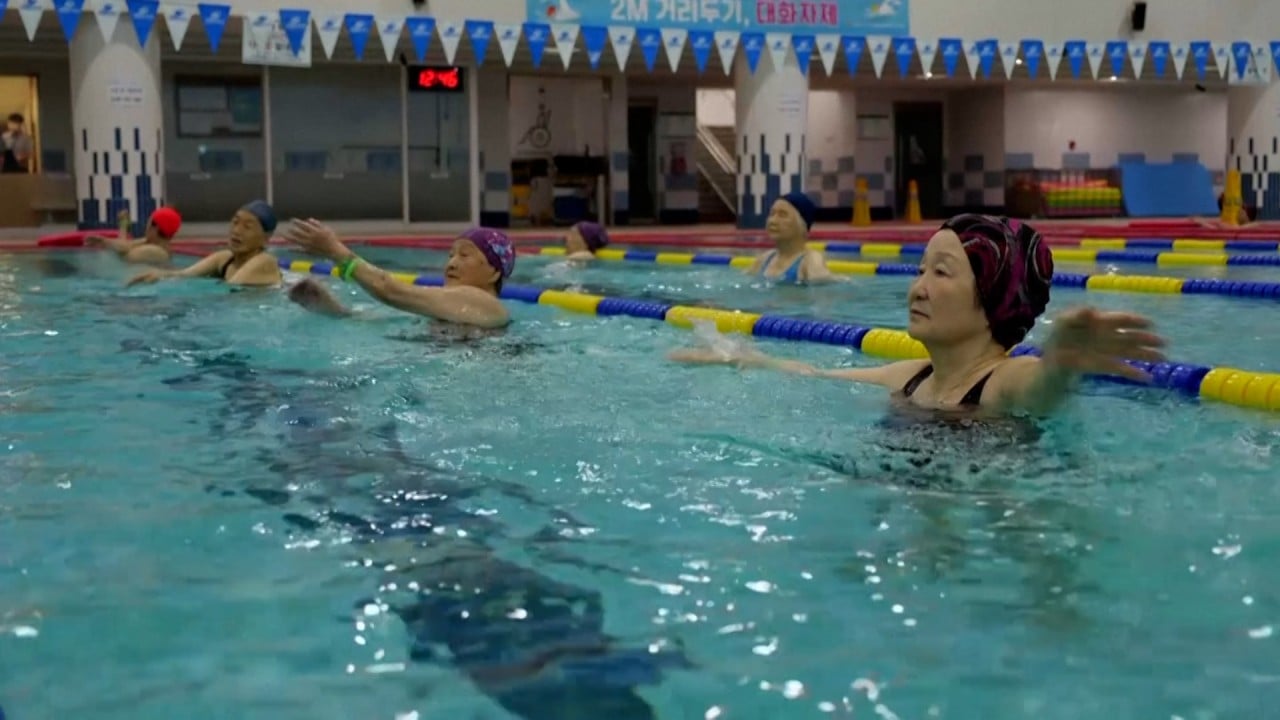
Retiring early is not always a dream come true, especially in a post-pandemic world
- Many have experienced loss of structure during the pandemic, but none more so than those suddenly thrust into early retirement by Covid-19
- Amid such uncertainty, finding daily activities that provide us with a sense of normality is more important than ever
I have adopted a new ritual since the pandemic began two years ago. I try to start every day with a swim. Swimming keeps me sane and has given my life structure during these uncertain times.
As the virus morphs and creates curveballs, I never know when I am going to have to return to the office or keep teleworking. The boundaries between work and play, weekdays and weekends have faded.
Simultaneously, the pandemic has added new layers of stress to our work lives, such as the pressure to pick up new forms of technology. Many of us “working stiffs” say we wish we could win simply the lottery and retire.
Anecdotally, it seemed to me recently that many people I knew were newly or soon-to-be retired. The numbers confirm the stories; the retired population has grown globally, in large part due to the pandemic.
With the rapid changes occurring in the world of work and the ever-growing list of skills needed to keep up, many older people found themselves being forced to retire early. In the US alone, the number of retired workers receiving Social Security benefits was nearly 70 million in 2021, a leap from 45.1 million in 2019.
Amid these changes, an unspoken chasm between the retired and the working began to develop in my psyche. My “congratulations” felt lukewarm to a friend who announced her retirement and went to Disney World not once but twice.
At 46, I am far from being a retiree due to eligibility (you need to be 62 to start accepting Social Security benefits) and financial reality.
At least I had swimming, I figured. But even on the deck and in the lane, there was a growing rift between the retired and the working.
This was easily seen when the pool where I swim (at the YMCA) limited each lane to two swimmers and formalised its lane booking system due to Covid-19; it was clear that the demand outweighed the supply, especially in the morning right before the working day started.
A resentment began building between the retired and non-retired. Clearly, I felt, those with jobs should get priority for the early morning swim lanes and showers.
I noticed that an older man, in his late 60s or early 70s, was there religiously every morning and always overstayed his booking time even as others waited on deck. One morning, already late for work, I desperately sought a lane.
“Do you want me to move over?” he asked, in a tone implying this was a big favour. “That would be nice since I need to get to work,” I said. “Well, I’m just trying to live longer,” he said matter-of-factly. A woman in her early 80s affirmed that, if she didn’t work out at the same time every morning, she would likely just sleep. “I’d die quickly,” she said.
Still, why couldn’t the retirees be more accommodating when their time was more flexible? Sometimes, they stayed past their time slot and most took their time socialising in the locker room.
I slowly observed that in their new lives, retirees had their own challenges. Some people were forced to retire by pandemic-driven downsizing, and others decided to leave the workforce as the growing demands of a changing workplace had become too stressful.
Amid the pandemic recession, a global pensions crisis is building
One woman noted that her dreams of retired life had been somewhat tarnished by Covid-19. She and her husband had a travel wish list (many of them cruises) but their plans had been thwarted by the pandemic.
Instead, they found adventures on road trips to national parks, but somehow felt like their dream had been diverted. Others had dreamed of spending more time with grandchildren, only to find themselves torn over safety guidelines.
The downside to early retirement was the sudden loss of structure and, at times, purpose. Working out, whether it be in the pool or on the treadmill, gave a sense of normality and certainly a jump-start to the day.
Perhaps the real slant of sun is that the pandemic has given us all a taste of what retired life could be like. Two years after Covid-19 first began to spread, my father is planning on finally retiring this year after 45 years of teaching at the same institution.
He has adapted somewhat to the world of virtual teaching and family socials. Recently, he proudly reported that he now knows how to create a Zoom invite from Microsoft Outlook.
“Maybe the only difference is that I’ll go to the library every morning too,” he said of his forthcoming retired life.
Amy Wu is an American-born Chinese based in New York. She previously worked in Hong Kong from 1996-2001 and 2010-2013



